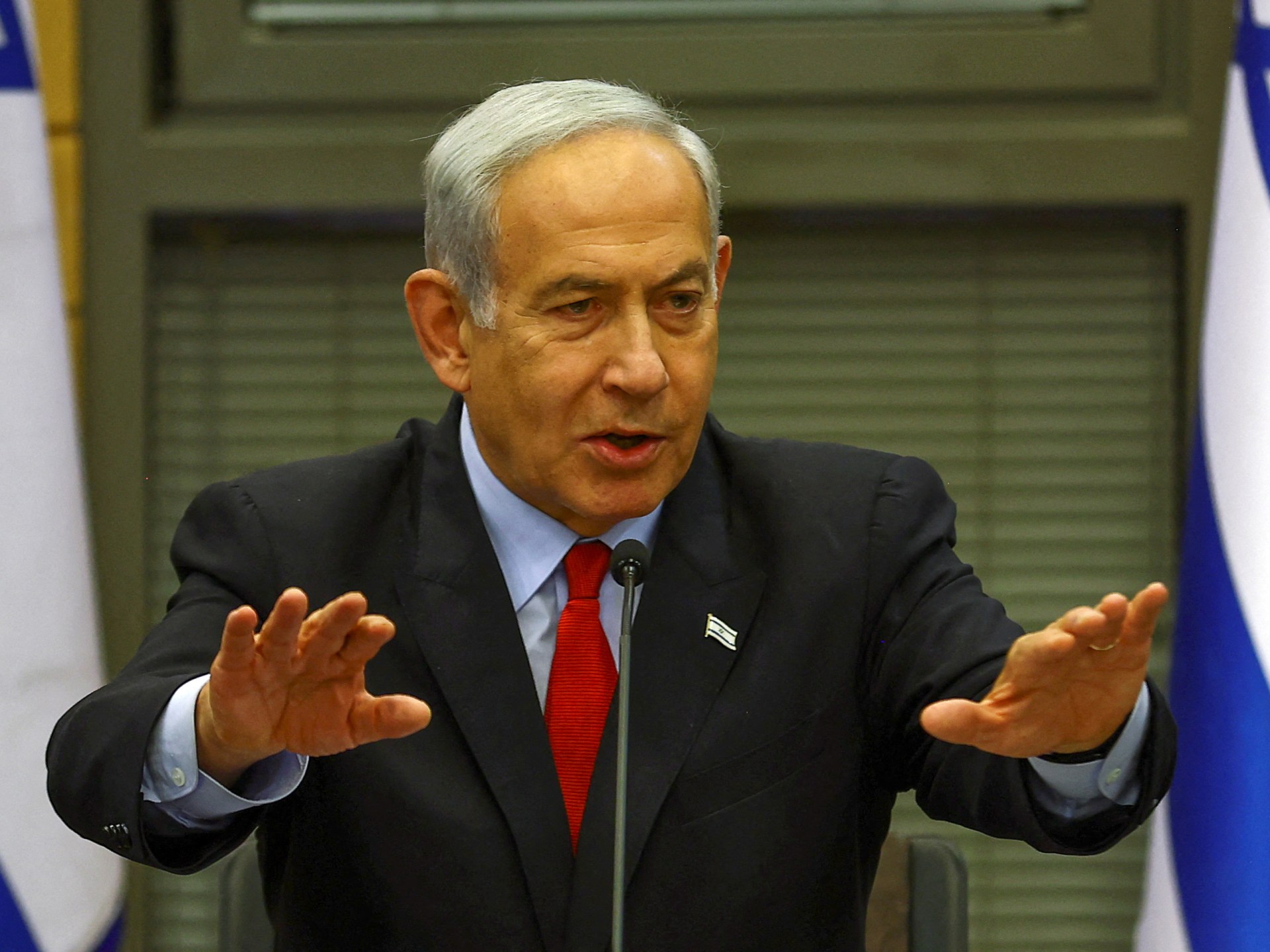Netanyahu's post-Gaza war document did not clearly define his vision of who would rule the Strip (Reuters)
The Israeli newspaper "The Marker" said that Prime Minister Benjamin Netanyahu is trying to sell his allies the ability to control Gaza militarily and reshape what he called the "education and religion sectors" in the areas of the Middle East that he described as the most "miserable and devastated."
The newspaper specializing in business affairs mentioned in an article by writer Sami Peres that the document for the next day of the Gaza Strip war presented by Netanyahu is based on military, civil and political foundations, but its military aspect is the most clear in terms of its planning to make Gaza like the West Bank so that the army maintains freedom of operational movement.
This is in contrast to the civil part of the document, which remains ambiguous and vague, supported by unfounded confidence in the ability to leave a profound impact on the civilian life of Gaza, and also to find someone to do so and decide who he is, according to the Israeli writer.
Peres explained that Netanyahu's goal in the post-war document was to "prohibit the Palestinian Authority's speech" so as not to undermine the alliance with Finance Minister Bezalel Smotrich and Homeland Security Minister Itamar Ben Gvir, so the document stated that the civil administration in Gaza would be entrusted to local officials with administrative experience.
Israeli deficit
According to the Israeli writer, phrases such as “as much as possible” - which appeared in the document - indicate Netanyahu’s inability to control his plan, and also indicate a very low level of expectations.
Peres added that what he called the greatest Israeli "arrogance" in the document lies in calling for a comprehensive program to combat extremism in all religious, educational and spiritual sectors, with the participation and support of Arab countries that have experience combating extremism in their territories.
This is what the writer considered an approach that reflects a lack of awareness and paranoia within the Israeli government, which has been unable to effectively manage its educational and religious systems, and claims the ability to do so in Gaza.
Peres reminded that Netanyahu has not achieved less ambitious things, such as including basic educational subjects in Israeli religious schools, but he claims the ability to control school curricula in Gaza, stressing that Netanyahu's plan for Gaza is doomed to failure.
Peres concludes his article by saying that, unlike Defense Minister Yoav Gallant and War Council Minister Benny Gantz, who only want complete military control in Gaza, Netanyahu, even when he does not want to get involved in the civilian administration of the Strip, is keen to leave the impression that he can control the lives of the people of Gaza from afar. Without bringing in teachers, inspectors and officials.
Last Friday, Netanyahu presented to the security cabinet a document of principles related to the policy of the day after the Gaza war, which includes Israel’s preservation of freedom of action in the entire Gaza Strip without a time limit, and also includes the establishment of a security zone in the Strip adjacent to Israeli towns.
The document does not clearly define Netanyahu's vision of who will rule Gaza after the war, but it says that "local elements with administrative experience" will be responsible for civil administration and public order in Gaza.
Source: Israeli press

